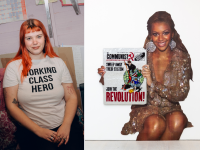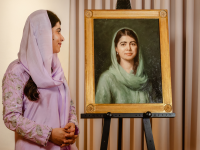This Michaelmas term, LMH is delighted to welcome three new Governing Body Fellows in the Study of Abrahamic Religions, Fine Art, and Spanish: Professor Frank Griffel, Onyeka Igwe and Dr Hannie Lawlor.
Read more about them below.
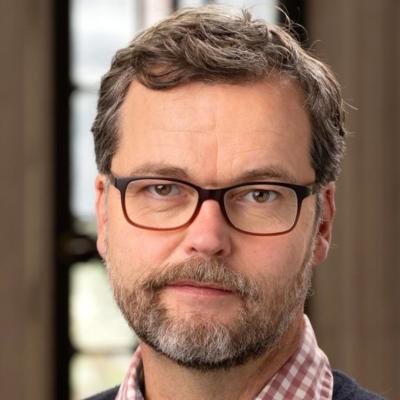
Professor Frank Griffel - Professor of the Study of Abrahamic Religions
Professor Frank Griffel has taken up the prestigious Chair of the Study of the Abrahamic Religions in the University of Oxford’s Faculty of Theology and Religion, which has come with an associated Fellowship at LMH since its inception in 2008.
Professor Griffel has published widely in the fields of Islamic philosophy and theology, as well as Muslim intellectual history. After working on apostasy in Islam and on the leading theologian and philosopher al-Ghazālī (d. 1111), Professor Griffel turned his interest toward the history of philosophy in Islam and Judaism, particularly during Islam’s post-classical period after the 11th century. He publishes in English and in German and his books have been translated into Turkish and Arabic. Professor Griffel is also the Louis M. Rabinowitz Professor Emeritus of Religious Studies at Yale University.
Professor Griffel’s current research interests include: exploring conflicts between reason-based knowledge and faith-based knowledge in pre-modern Islam, Judaism and Christianity; conflicts between philosophy and religious authority and religious tolerance in the pre-modern period.
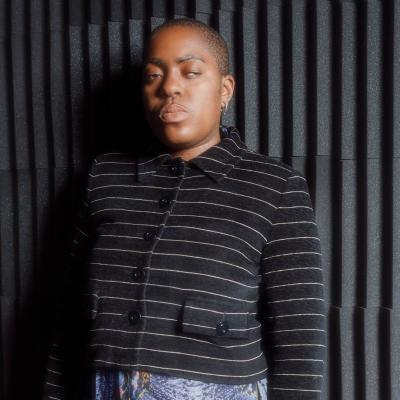
Onyeka Igwe – Fellow and Tutor in Fine Art
Onyeka Igwe joins LMH this Michaelmas term as our new Fellow and Tutor in Fine Art, and is an Associate Professor at the Ruskin School of Art.
Onyeka is an artist, writer, and researcher. Her work is aimed at the question: how do we live together? Not to provide a rigid answer as such, but to pull apart the nuances of mutuality, co-existence and multiplicity. Onyeka’s practice figures sensorial, spatial and counter-hegemonic ways of knowing as central to that task. She has had solo/duo shows at Peer Gallery, London (2024), Bonington Gallery, Nottingham (2024), MoMA PS1, New York (2023), High Line, New York (2022), Mercer Union, Toronto (2021), Jerwood Arts, London (2019) and Trinity Square Video, London (2018). Her films have screened in numerous group shows and film festivals worldwide, and she is participating in the group show Nigeria Imaginary in the national pavilion of Nigeria at the upcoming 60th Venice Biennial.
Onyeka is part of B.O.S.S., a sound system collective that brings together a community of queer, trans and non-binary people of colour involved in art, sound and radical activism. Together with Rachael Rakes and Laura Huertas Millán, she is part of a curatorial and research initiative on alternative and anti ethnographies.
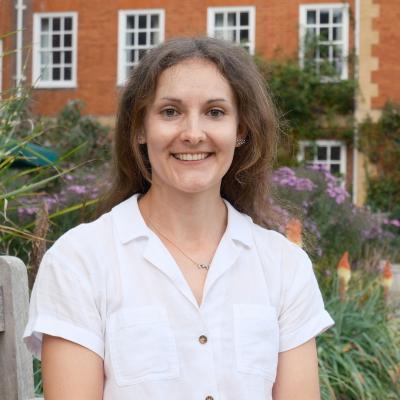
Dr Hannie Lawlor – Fellow and Tutor in Spanish
Dr Hannie Lawlor (2011, Modern Languages) joins us as LMH’s new Fellow and Tutor in Spanish. She is also Associate Professor in Modern Spanish Literature and Film in the University of Oxford’s Faculty of Medieval and Modern Languages.
Dr Lawlor completed her BA and MSt at LMH under the tutelage of Professor Marie-Chantal Killeen and Professor Xon de Ros, who inspired in her the interest in women’s life writing that has become her specialism. After completing her DPhil at Wolfson College, Dr Lawlor held academic posts in Oxford before moving to University College Dublin in 2022.
Dr Lawlor’s research focuses primarily on women’s autobiographical practices in the twentieth- and twenty-first century. Her current project is a response to the lack of attention that has been afforded to autobiographical works by Spanish women in international discussions of life writing. Surveying diverse forms of self-representation, from grief memoirs to autofictional film, in dialogue with the socio-historical circumstances that have played a major role in shaping the practice, it traces key tendencies that have emerged from the 1940s to the present and explores the insights this body of work offers in the context of twenty-first-century theoretical discussions.
